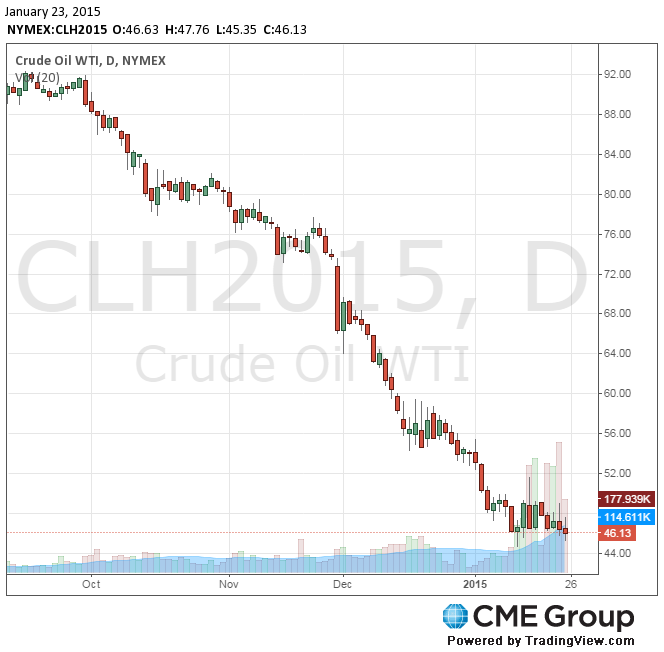- Oil fell
Market news
Oil fell
The increase in oil prices after the death of Saudi Arabia's King Abdullah will probably be temporary amid an oversupply in the crude market.
Brent, the global oil benchmark, climbed as much as 2.6 percent on Friday while U.S. marker West Texas Intermediate jumped 3.1 percent after the king's death was announced by the Saudi royal court. The new King Salman bin Abdulaziz, Abdullah's half-brother, said he will maintain the policies of his predecessor in a speech on Saudi national television. Oil Minister Ali Al-Naimi will remain in his post, a royal decree announced.
Saudi Arabia, OPEC's biggest producer, has led the group's strategy of maintaining production levels amid a 58 percent drop in crude since its peak in June. While smaller producers including Venezuela called for action to prop up prices, Al-Naimi highlighted the need to preserve market share amid signs of slowing growth and as the U.S. pumps the most since 1983.
"There's still an overwhelming glut of supply in global markets," said Stephen Schork, president of Schork Group in Villanova, Pennsylvania. "Certainly this death matters but it doesn't fundamentally change anything. The Saudis are trying to preserve market share and have been quite clear about that."
